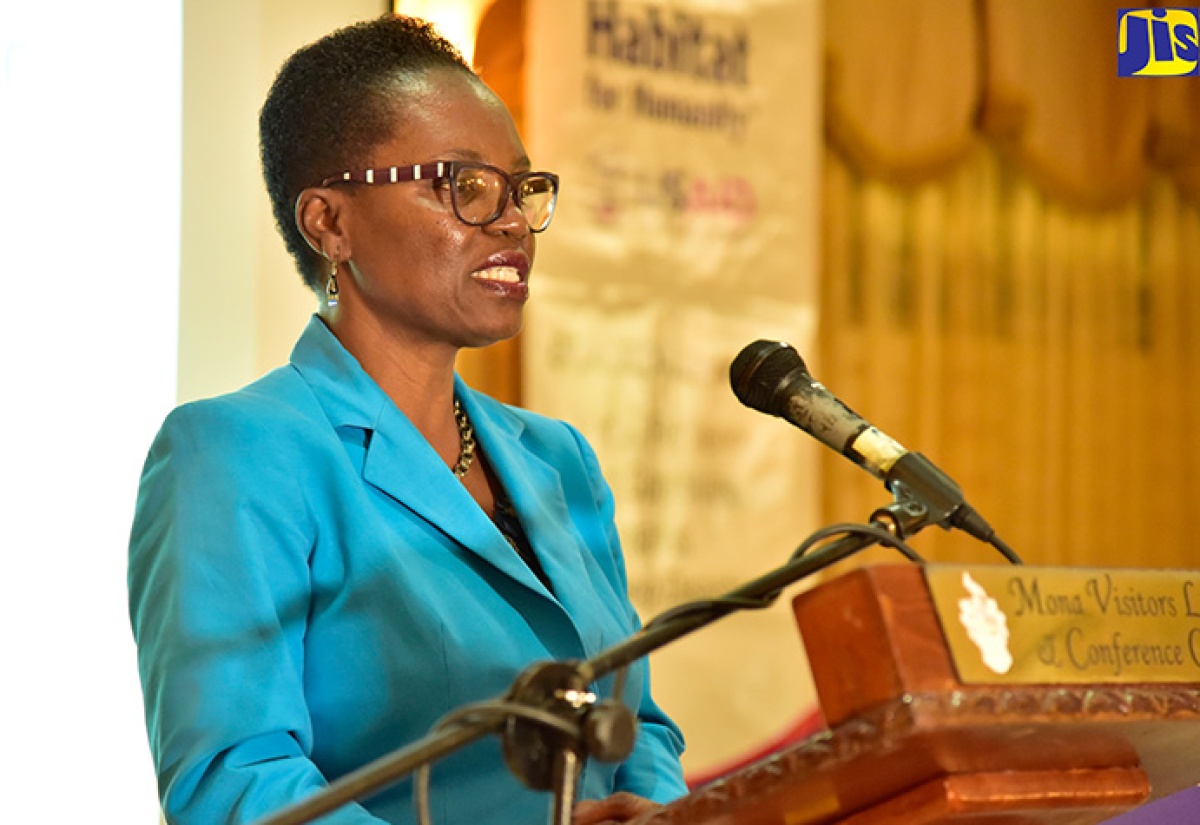Minister Vaz Says BRACED Project Should Be Replicated in Other Vulnerable Communities
By: , March 22, 2018The Key Point:
The Facts
- The speech was delivered at a Best Practice Symposium on Informal Settlements at the Mona Visitors’ Lodge, University of the West Indies (UWI), on March 21.
- Mr Vaz said he appreciated the work that has been done in the area of disaster risk reduction over the past three years in the communities of Naggo Head, Gregory Park and Newlands in Portmore under the project, and pledged the Government’s continued support for the endeavour.
The Full Story
Minister without Portfolio in the Ministry of Economic Growth and Job Creation, Hon. Daryl Vaz, is suggesting that the Habitat for Humanity International’s Building Resilience and Capacities for Emerging Disasters (BRACED) project, being undertaken in Portmore, St. Catherine, be replicated in other vulnerable communities.
“It is my hope that as all (relevant) agencies… along with the various interest groups, review and discuss what the project in Portmore has yielded, that serious discussions and plans are formulated to replicate and expand on those lessons that proved to be catalytic for the communities in Portmore,” he said in a speech read by Chief Technical Director in the Economic Growth Ministry, Doreen Prendergast.
The speech was delivered at a Best Practice Symposium on Informal Settlements at the Mona Visitors’ Lodge, University of the West Indies (UWI), on March 21.
The project, which is funded by the United States Agency for International Development (USAID), seeks to support innovative and proven ways to reduce the risk of disasters to populations living in hazard-prone, marginalised and vulnerable urban neighbourhoods.
Mr Vaz said he appreciated the work that has been done in the area of disaster risk reduction over the past three years in the communities of Naggo Head, Gregory Park and Newlands in Portmore under the project, and pledged the Government’s continued support for the endeavour.
“We recognise that there are many other communities across the length and breadth of Jamaica that can also benefit from the attention given to the (targeted) communities, so we hope that, in the near future, we will be able to work together in strengthening more communities,” he said.
Mr Vaz said he was pleased that under the project, so far, 550 households received home improvements or assistance; over 800 hazard awareness sessions were held; community action plans and redevelopment plans were drafted; community residents were exposed to geographic information systems (GIS) technology; and surveys were conducted with the aim of securing land tenure for residents.
In the meantime, Opposition Spokesperson on Land and the Environment, Senator Sophia Frazer Binns, also welcomed the project, noting that “it is work that is worth emulating” that highlights the importance of community engagement.
“This, perhaps more than most other projects, has shown the importance of community engagement and how involving the community can make a difference,” she said.
The overall objective of the symposium was to share lessons learnt on the approach and practices used to legitimise informal settlements in the targeted communities.
The specific objectives were to examine different levels of participation that facilitate community readiness for development initiatives, to highlight the use of GIS as a critical tool in community development, and to highlight and analyse the legal framework that prohibits or enhances regularisation of communities in Jamaica.
It also sought to analyse the critical milestones needed to sustain interventions in informal settlements; and to discuss and analyse the realities of informal settlements and the impact on social development in Jamaica.
Implemented in 2014, the BRACED project, which is now in its second phase, was developed by Habitat International through collaborative partnerships with local actors, specifically local Adventist Development and Relief Agency (ADRA) staff, key informants at all levels of government and the Portmore municipality.


